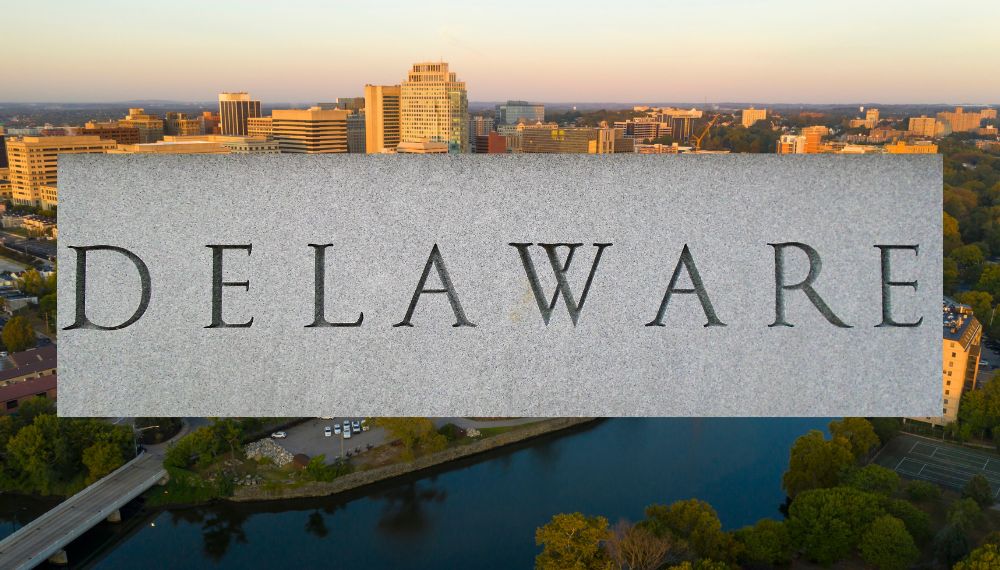How To Handle a Death at Your Rental Property?
- March 1, 2023
- manoj
- Category: LANDLORD TIPS

Losing a loved one is never easy, and when that loss happens at a rental property, it can be incredibly challenging for both the property owner and the tenants.
Not only must you navigate the emotional impact of the loss, but you must also deal with the practical and legal implications of the situation. That’s why it’s essential to understand how to handle death at your rental property.
Today, we’ll cover the key topics you need to know to manage the situation effectively.
We’ll discuss your legal responsibilities as the property owner, provide practical guidance on how to manage the situation, and offer advice on providing emotional support to those affected.
Dealing with a death at a rental property can be a complex and challenging experience.
Still, by understanding your responsibilities and following the guidance in this post, you can navigate the situation with compassion and professionalism.
Legal Responsibilities
Dealing with death at your rental property requires understanding your legal responsibilities as the property owner or manager. Failure to comply with these responsibilities can result in legal and financial consequences, so knowing what’s expected of you is essential.
-
Reporting Requirements
The first step in handling a death at your rental property is to report the situation to the appropriate authorities. Depending on the circumstances, you may need to contact the police, coroner, or medical examiner. You should also be aware of state or local laws requiring you to report the death to other authorities, such as the health department.
-
Handling the Deceased Person’s Belongings
Once the authorities have been notified, you must determine what to do with the deceased person’s belongings. In most cases, the next of kin or estate executor will handle the deceased person’s personal property. However, you should still take steps to secure the property and ensure it is not damaged or stolen. If you need to remove or dispose of any items, follow legal requirements and document your actions.
-
Cleaning and Restoration
Sometimes, a death at your rental property may require extensive cleaning and restoration. For example, biohazardous materials might require professional cleaning if the death resulted from a crime, accident, or unattended natural death. You may also need to repair any damage to the property, such as broken windows or doors. Depending on the situation, you may need to hire a professional cleaning or restoration company to handle these tasks.
-
Insurance Coverage
Finally, it’s essential to understand your insurance coverage in the event of a death at your rental property. Your homeowner’s insurance policy may cover some of the costs associated with the cleanup and restoration. Still, it’s essential to review your policy carefully and understand the limits of your coverage. Consider purchasing additional liability insurance to protect yourself in case of a lawsuit or other legal action.
Practical Guidance
In addition to understanding your legal responsibilities, knowing how to manage the situation practically is essential. Here are some steps you can take immediately after discovering a death at your rental property:
Immediate Steps
- Call the authorities: The first step is to call 911 or the appropriate emergency number to report the death. Ask the emergency operator for guidance if you need help with what to do.
- Notify the tenant’s family: If the deceased person is a tenant, you should notify their family as soon as possible. Be sensitive when communicating this information, as it can be difficult for everyone involved.
- Secure the property: Once the authorities have been notified, securing the property is essential to prevent unauthorized access. It may involve locking doors and windows or boarding up broken windows or doors.
- Document the scene: Take photos or videos of the scene, including any damage or personal property, before anyone disturbs it. It can be helpful for insurance purposes and legal proceedings.
Communicating with Tenants and Family Members
- Be sensitive and respectful: When communicating with tenants and family members, respect their feelings. It is a difficult time for everyone involved, and showing empathy and compassion is essential.
- Provide updates: Keep tenants and family members informed of any updates or changes to the situation. It can help alleviate anxiety and uncertainty.
- Respect privacy: Be respectful of the deceased person’s privacy and their family’s privacy. Don’t share personal information or details about the death unless necessary.
Managing the Property During the Investigation and Cleanup Process
- Coordinate with the authorities: Coordinate with the authorities to ensure that their investigation doesn’t disrupt the normal operations of the property.
- Hire a professional cleaning or restoration company: If necessary, hire a professional cleaning or restoration company to handle any biohazardous materials or damage to the property. Make sure they are licensed and insured.
- Document all actions: Document all actions taken, including communication with tenants and family members, cleanup and restoration efforts, and any expenses incurred. It can help protect you in case of legal proceedings.
Emotional Support
Dealing with death at your rental property can be emotionally challenging. Here are some tips for managing your emotions and providing support to others who may be affected:
Managing Your Own Emotions
- Seek support: Be bold and seek support from family, friends, or a mental health professional. Talking to someone about your feelings can help you process and manage your emotions.
- Take care of yourself: Take care of yourself physically and emotionally during this time. Get enough sleep, eat well, and engage in activities that you enjoy.
- Practice self-compassion: Be kind to yourself and practice self-compassion. Recognize that this is a difficult time, and feeling a range of emotions is normal.
Supporting Tenants and Family Members
- Offer condolences: Offer condolences to the tenant’s family and express your sympathy for their loss.
- Resources: Provide tenants and family members with resources for the area’s grief counseling or support groups.
- Be available: Let tenants and family members know you’re available to talk or provide assistance if needed.
- Respect boundaries: Respect tenants’ and family members’ boundaries and give them space if needed.
Resources and Support
Dealing with death at your rental property can be a challenging and emotional experience. Here are some resources and support services that may be helpful:
-
Attorneys
If you have questions about your legal responsibilities or need assistance with legal matters related to the death, consider hiring an attorney specializing in landlord-tenant law or estate law.
-
Property Managers
If you’re feeling overwhelmed or need assistance with managing the property during the investigation and cleanup process, consider hiring a property manager specializing in managing rental properties.
-
Grief Counselors
If you or someone you know is struggling with the emotional impact of the death, consider seeking help from a grief counselor or therapist. They can provide support and guidance during this difficult time.
-
Local Support Groups
There may be local support groups for those who have experienced a death at their rental property. Contact local community centers, places of worship, or grief support organizations for more information.
-
Government Agencies
Depending on the circumstances of the death, you may need to contact government agencies such as the police, coroner’s office, or health department for assistance or guidance.
Remember, taking care of yourself and seeking help during this difficult time is essential.
Insights from People Who Had Faced Same Situations
Rick Bassett, a property manager from Greater New Haven, CT, posts on the BiggerPockets Forum about a similar situation he had to face. The death of a young woman by an apparent drug overdose happened at his rental property. Her boyfriend was also over-drugged and taken to the hospital. The couple had four children behind and were taken away by DCF, as no in-state relatives existed.
On the other hand, Rick was expecting a problematic situation and sought advice from those who had been through this before.
Weighing in on the situation, here’s what experts on the BiggerPockets Forum said:
Soh Tanaka, a property manager from Lindenhurst, IL, says, “I guess the next step is to call the emergency contact on the lease (I hope you have that) and have things taken out from the house so that you can lease to the next tenants.”
Bettina F, a real estate investor from Post Falls, ID, says, “Is BF on the lease? If he is not on the lease, you cannot legally let him return to the property.” Further, Bettina says, “Secure the house, notify emergency contacts, and develop a plan.”
Later, Rick had a sort of happy ending with his rental property, with all the tenants’ belongings moved out after convincing him to move out. However, Rick did face some issues, such as minimal damage to his property and no rent for around two months.
Last Words
Dealing with a death at a rental property is a challenging and emotional experience, but knowing how to handle the situation can make the process easier for everyone involved. Here are some key takeaways from this post:
- Property owners and managers have legal responsibilities in case of a death at the rental property, including reporting requirements and procedures for handling the deceased person’s belongings.
- It’s essential to be prepared and have a plan for managing the situation, including steps to take immediately after discovering the death, communication with tenants and family members, and managing the property during the investigation and cleanup process.
- Providing emotional support to tenants and family members is an integral part of managing the situation, and resources and support services are available to help.
- Seeking help from attorneys, property managers, and grief counselors can make the process easier and less stressful.
- Remember to take care of yourself and seek out support if needed.
If you’re dealing with a death at your rental property, remember you’re not alone. By following the guidelines and resources provided in this post, you can navigate the situation with greater ease and confidence.




